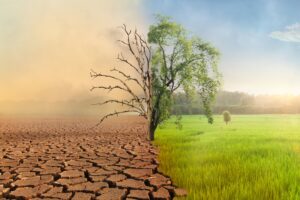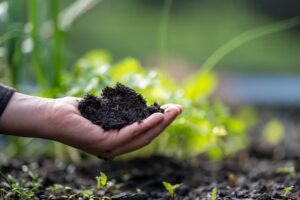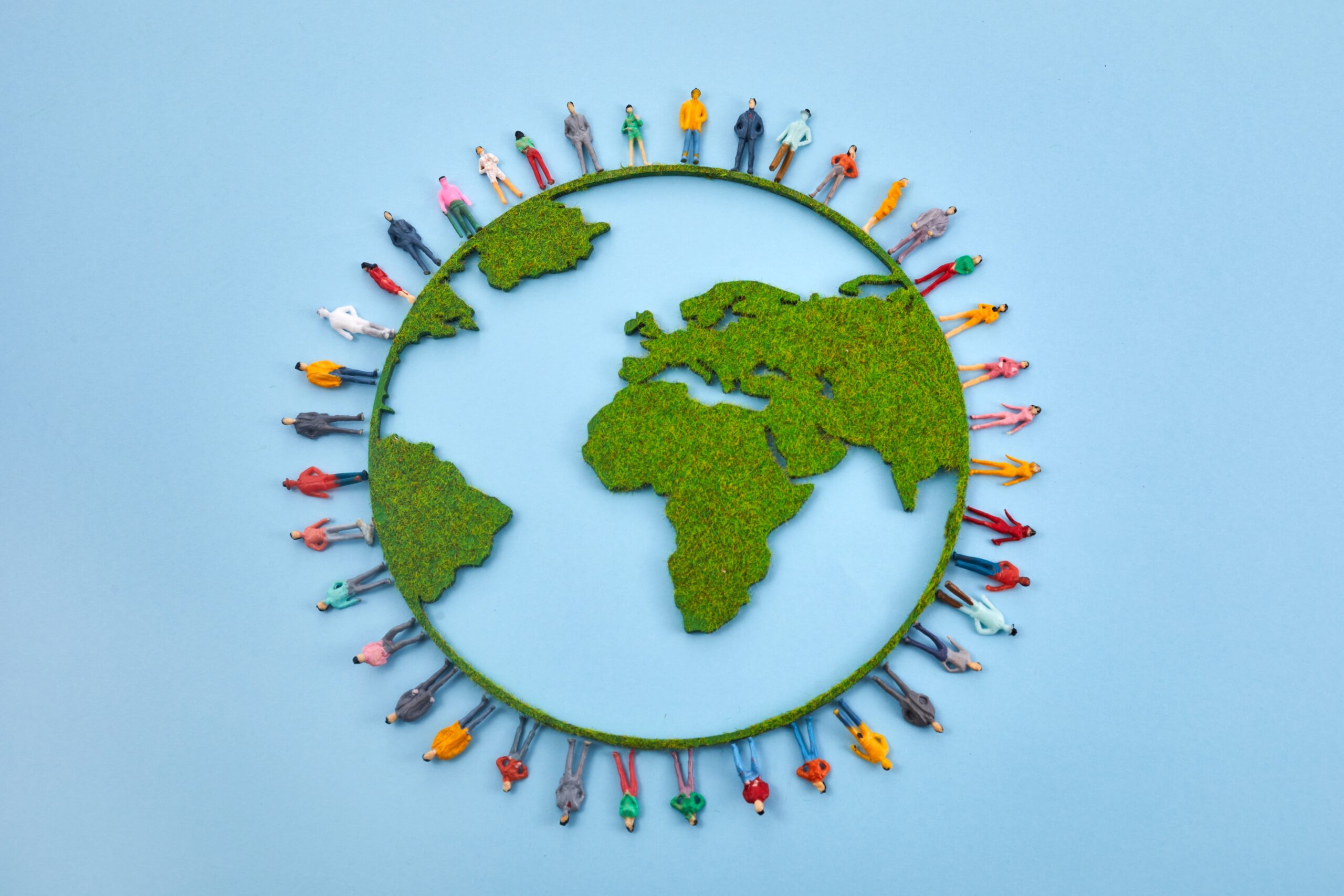“Agricultural scientists echo the same sentiment – the human population is increasing,” Dr. Arun Bhunia stated. This, in turn, means we need to safely feed more people.
What is food sustainability?
The National Agricultural Library, U.S. Department of Agriculture explains, “Sustainable agriculture is farming in such a way to protect the environment, aid and expand natural resources, and to make the best of use of nonrenewable resources.”*
“Sustainable agriculture means an integrated system of plant and animal production practices having a site-specific application that will over the long-term:
- Satisfy human food and fiber needs
- Enhance environmental quality and the natural resource base upon which the agriculture economy depends
- Make the most efficient use of nonrenewable resources and on-farm resources and integrate, where appropriate, natural biological cycles and controls
- Sustain the economic viability of farm operations
- Enhance the quality of life for farmers and society as a whole,” per the USDA.
Sustainable agriculture includes “non-chemical pest and soil management,” Purdue University states.
The safety of our crops is at risk.

With the ever-changing climate change crisis, the resilience of land, our crops and food supply are neither resilient, nor up to par. The health and wellbeing of our population is directly affected.
What are the biggest challenges in food sustainability?
- “Agricultural land is shrinking,
- The population is growing, and
- If our food is not produced in a level method, we will not be able to supply food to the population.”
What are the breakthroughs? What’s next?
Critical thinking, research, analysis, and action for food sustainability needs to be focused on “producing high quality products in a manner where we can provide protein sources to the masses,” he said.
Dr. Bhunia further noted that we need to “reduce microbial hazards to a level so those foods cannot be recalled or thrown away, thereby reducing food loss.”
How is climate change impacting food sustainability and our populations’ health and wellbeing long term?
Climate change = “rising temperature, natural disasters.” Food spoilage skyrockets with dry, high temperatures. On top of that “organisms, like mold, like the higher temperatures” – increasing food spoilage, Bhunia said.
Climate change pushes us to “think globally, on a bigger scale of all the different aspects of food production and how we can have more food produced to feed the growing population,”
Bhunia explained. “We need to have edible food for everyone.”

We know that tried-and-true solutions have not yet been ascertained. Because as Bhunia questioned, “How do you control the climate?
Many microbes, including disease-causing foodborne pathogens, need to be controlled during food production.”
“Climate change is considered ‘the biggest health threat facing humanity,’” by the World Health Organization.

Bhunia stated individuals can make a discrete effort by “trying to reduce their carbon footprint; as that may reduce the warming trend.” Simply put, it requires action from all of us.
Talking food spoilage, what percentage of crops grown spoil, never reaching us?
A staggering, approximate “15-20% (some estimates 30%) of our food is getting spoiled and does not get to consumers,” Bhunia informed.
He said, “We have to reduce spoilage as well, but it is difficult.”
Bhunia said, “Wholesome food is also becoming a challenge.” He zeroed in on “one of the major drivers – protein – the major nutrient we need in our diet.” He stated experts “need to start thinking about alternate sources of protein.”
Food for thought. But that comes with its own set of challenges and as Bhunia put it, is “tricky.”
“We need to tap into types of protein sources – like insects or from our wildlife.” As we have learned, “COVID is a prime example of how dangerous such practice is. Many unknown pathogens may originate from that environment, and coming in contact with humans could become a huge concern going forward.” An unknown microbial ecosystem that may have a significant impact on our health and wellness. We know many wildlife carry disease-causing microbes, including deadly viruses.
There is much to learn in that realm and Bhunia explained “We have very little knowledge of the microbiological ecosystem in those types of products/wildlife.”
“While human activity has been a main driver of climate change, microbes are also a major factor,” he said.
What are microbes?
“The most abundant organisms on Earth, microbes both affect and are affected by a changing climate. Newly evolved microbial activities can lead to positive or negative feedback on climate change and its effects.” This is one reason why experts’ understanding of microbes “will be vital to combat the harmful impacts of climate change on society.”**
The relationship between climate change and microbes is especially relevant when it comes to:
- “Microbial influences on greenhouse gases
“Greenhouse gases are atmospheric gases that emit and absorb heat – tapping it in the Earth’s atmosphere and leading to global warming.”**
This leads to:
“Making diseases more prevalent and natural disasters more extreme.”**
- Microbial adaptation to climate change
“Microbes’ fast growth rates, large population sizes and ability to share genetic information with one another allow them to adapt quickly to environmental variability.”**
“Viruses that infect soil and aquatic microbes can also promote changes in microbial activity and community structure.”** Some of which result in an increase of greenhouse gases entering the atmosphere.

- Microbes, health and the environment”**
Warmer temperatures allow pathogens to expand their spatial range. What does this mean? Marine bacteria, for example, that live in warm and coastal waters can lead to contamination through contaminated seafood getting to consumers. Symptoms such as dehydration, fever, vomiting, nausea and diarrhea are common.
Climate change and food sustainability require a lot of in-depth research, effort, and adaptability by humans. Did you know that microbes adjust rather effortlessly, almost innate?
A lot of lessons can be learned from microbes. “For successful outcomes from this line of research and innovation, studying climate change at microbial levels is critical.”**
“Microbes are already adapting to a changing climate, causing serious implications for society.”*
“As microbes adapt well into this changing climate, I think it is more difficult to kill them, to inactivate them, and to get rid of them,” Bhunia said. “I know this is causing more issues and problems in our food supply.” Bhunia reflected stating that “I don’t know the problem will go away, but we will have a better handle on addressing the problems.”
Microbes “have been on this planet long before we have, so they know how to adjust, tolerate and adapt to this changing environment.”
Taking all of this into consideration, “I won’t be surprised if we continue to see more foodborne outbreak cases because of the microbes,” Bhunia concluded.
A lot of important and intensive work is underway on a global scale in order to help achieve a healthier planet and population.
In order to achieve a healthier planet, it is imperative that we learn from experts like Dr. Bhunia.
Dr. Arun Bhunia is Professor of Molecular Food Microbiology, Chair of the Food Science Graduate Program at Purdue University. He has received numerous awards throughout his career and is Editor-in-Chief of Foods.
**Climate Change Experts Tap Microbes to Protect the Planet | ASM.org
This website does not provide medical advice. No material on this site is intended to be a substitute for professional medical advice, diagnosis or treatment. It is for informational purposes only. Always seek the advice of a medical professional or other qualified health care provider on any health matter or question.
